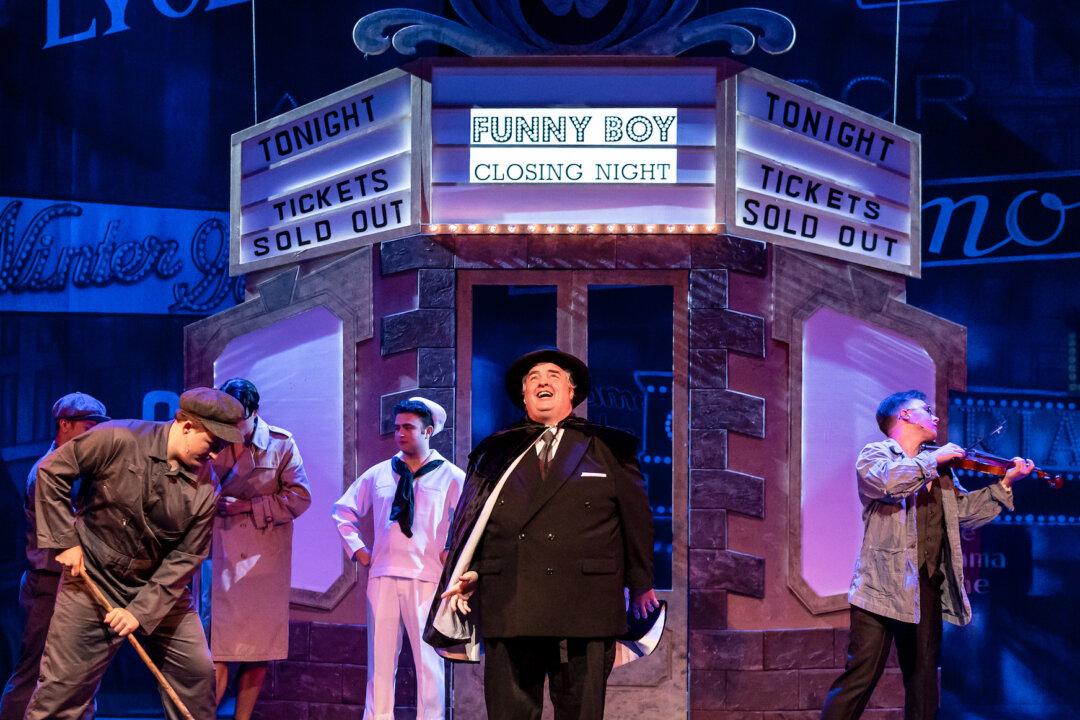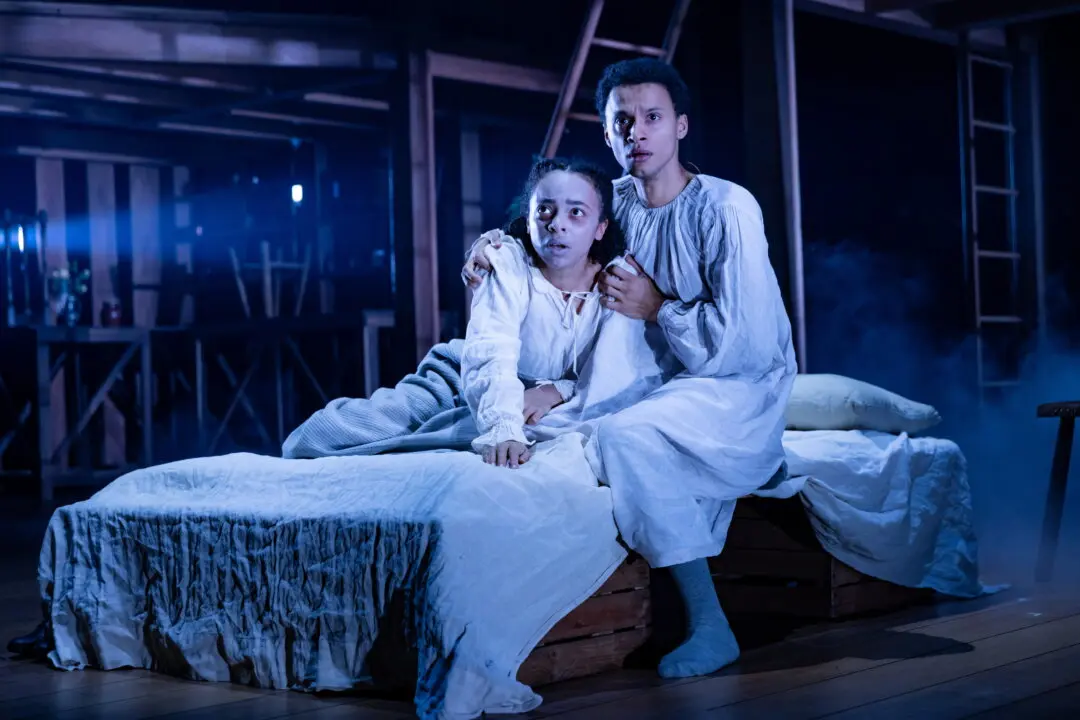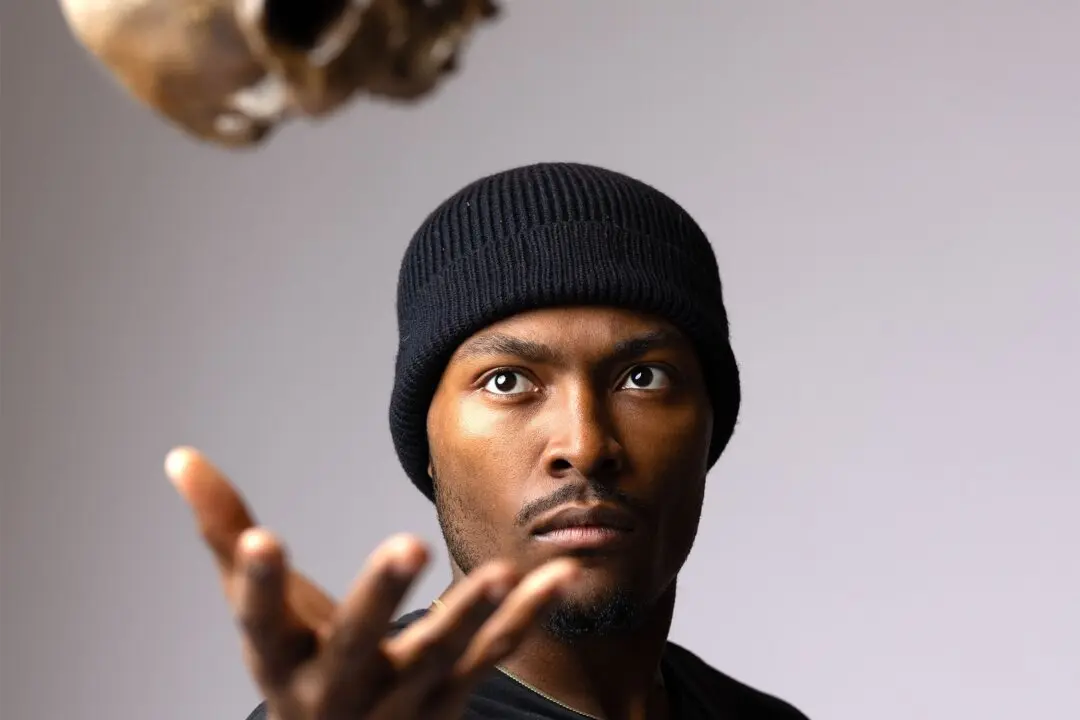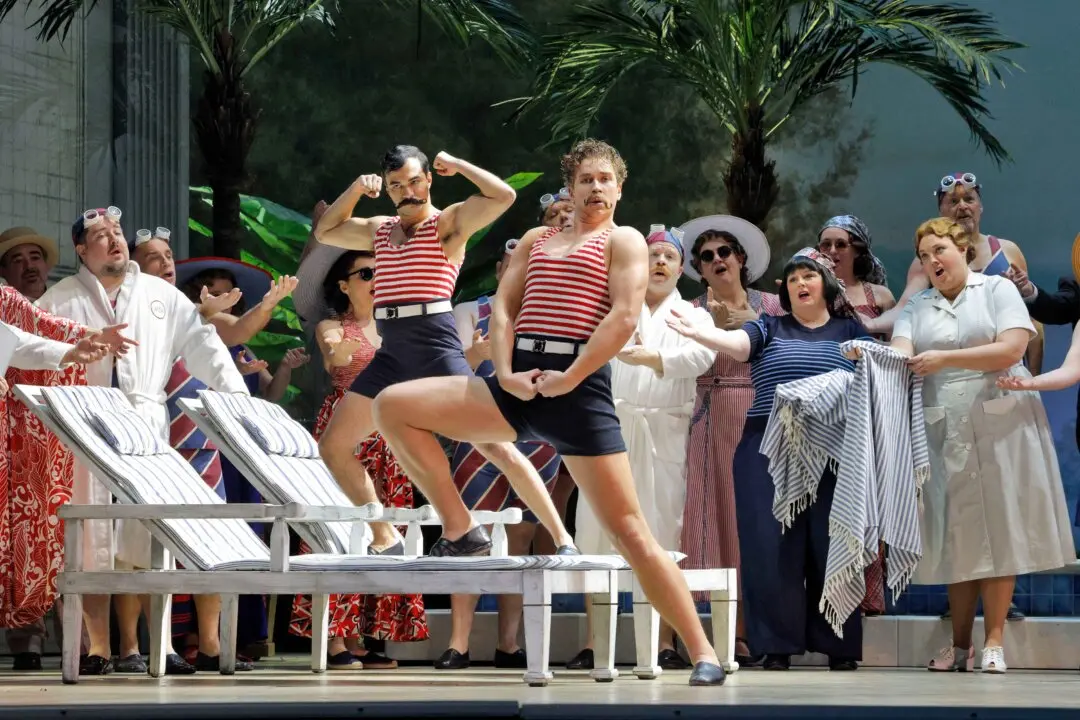SKOKIE, Ill.—Max Bialystok walks out of “Funny Boy,” his reinvention of Shakespeare’s “Hamlet,” which he has just produced in a Broadway theater. He reads the reviews of the show—“It was the worst show ever” and “Everybody is dead; they were the lucky ones.” That opening scene is just the beginning of the hilarious show “The Producers,” which was interrupted throughout by laughter and applause from the appreciative theatergoers at the Music Theater Works in Skokie, Illinois.
Indeed, the shrieks of laughter from the audience become ever more raucous as Mel Brooks’s madcap and irreverent humor roll out in this delicious, exuberant production. Not only is this a riot of a fun show, but in the midst of our world in disarray, this is just the feel-good tonic we all need.





